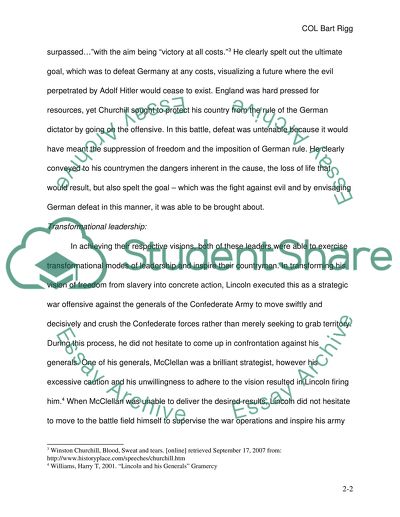Using Cohens Book Compare Churchill and Linclon Essay. Retrieved from https://studentshare.org/miscellaneous/1542210-using-cohens-book-compare-churchill-and-linclon
Using Cohens Book Compare Churchill and Linclon Essay. https://studentshare.org/miscellaneous/1542210-using-cohens-book-compare-churchill-and-linclon.


